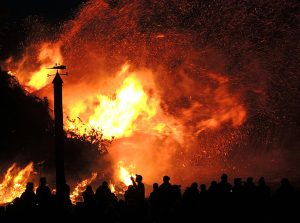In the aftermath of a disaster, homeowners face the daunting task of rebuilding their lives, a process often compounded by the complexities of filing insurance claims. Insurance companies, with their own interests in mind, may offer settlements that fall short of covering the actual damages incurred. This is where the expertise of a public claims adjuster becomes invaluable. Acting as advocates for policyholders, these professionals possess the knowledge and experience necessary to navigate the intricate insurance landscape, ensuring that homeowners are not left at a disadvantage.
The role of a public claims adjuster extends beyond mere representation. They meticulously assess the damage, prepare comprehensive claims, and negotiate with insurance companies to secure the most favorable settlement possible. Their involvement can dramatically transform the outcome of an insurance claim, turning potential financial ruin into a fair resolution that enables policyholders to rebuild and recover.
Through a deep-dive exploration of three poignant real-life examples, this post aims to shed light on the pivotal role that public claims adjusters play in the insurance claim process. From the underpaid claims in the wake of Hurricane Sandy to the outright denied claims following the California wildfires, and the challenges faced by homeowners in Houston after devastating floods, these scenarios underscore the substantial difference that professional advocacy can make. Supported by relevant court cases and articles, these examples not only illustrate the challenges homeowners face when dealing with insurance claims but also highlight how public claims adjusters serve as crucial allies in securing just outcomes.
As we delve into these examples, we invite readers to consider the tangible benefits of enlisting a public claims adjuster. Whether faced with a natural disaster or navigating the hurdles of underpaid or denied claims, the expertise of a public claims adjuster can be a game-changer, ensuring that homeowners receive the fair and rightful compensation they deserve.
Table of contents
1. Hurricane Sandy and Underpaid Claims

Hurricane Sandy and Underpaid Claims
In late October 2012, Hurricane Sandy, dubbed “Superstorm Sandy,” unleashed its fury across the East Coast of the United States, leaving a trail of destruction in its wake. The magnitude of the disaster was overwhelming, with countless homes damaged or destroyed, necessitating billions of dollars in insurance claims. However, the path to recovery was fraught with challenges for many homeowners, as they encountered insurance companies reluctant to disburse adequate compensation for the damages suffered.
The Struggle for Fair Settlements
In the aftermath of the storm, many policyholders found themselves in contentious disputes with their insurance carriers. The insurers, in numerous instances, offered settlements that were starkly inadequate, failing to cover the actual cost of repairs and reconstruction. This disparity left homeowners in a precarious position, facing the grim prospect of not being able to afford the necessary repairs to restore their homes.
The Role of Public Claims Adjusters
Enter public claims adjusters: professionals dedicated to representing the interests of the homeowner rather than the insurance company. With an in-depth understanding of insurance policies and the claims process, these adjusters took on the task of thoroughly assessing the damage to properties, compiling detailed reports, and negotiating with insurance companies on behalf of the homeowners.
One striking example of their effectiveness involved a homeowner in New Jersey who was initially offered a paltry $10,000 by their insurance company—a sum grossly insufficient to address the extensive damages. After enlisting the services of a public claims adjuster, the settlement amount was renegotiated to an astounding $250,000. This adjustment did not just represent a financial win for the homeowner but symbolized hope and the possibility of rebuilding a life disrupted by natural disaster.
Investigative Reports and Legal Battles
The discrepancies in settlement offers and the actual damages led to increased scrutiny from the media and legal experts. A notable investigation by “60 Minutes” in 2015 uncovered that engineering reports had been systematically altered to minimize insurance payouts. This revelation sparked outrage and led to several class-action lawsuits, further underscoring the adversarial nature of the claims process in the wake of Sandy.
Public claims adjusters were instrumental in these legal battles, providing crucial evidence and expert testimony that helped shift the tide in favor of homeowners. Their advocacy ensured that the voices of policyholders were heard, leading to more equitable settlements for those affected by the storm.
2. California Wildfires and Denied Claims

California Wildfires and Denied Claims
The California wildfires represent some of the most devastating natural disasters in recent U.S. history, leaving behind a trail of destruction that has impacted thousands of homeowners. The fires, which have grown in intensity and frequency due to a combination of factors, including climate change, have resulted in significant property loss and emotional distress for those affected. The journey to recovery for many has been complicated by insurance companies’ reluctance to provide fair settlements for the damages incurred.
The Challenge of Denied Claims
In the wake of the wildfires, homeowners faced not only the loss of their homes but also the daunting challenge of dealing with insurance claims. For some, this process became even more arduous when their claims were unjustly denied. Insurance companies, citing various reasons such as policy exclusions or insufficient evidence of damage, left many homeowners in a state of limbo, uncertain if they would ever recover the means to rebuild their homes and lives.
Advocacy Through Public Claims Adjusters
Public claims adjusters emerged as vital advocates for homeowners during these turbulent times. Their expertise in insurance policy interpretation, damage assessment, and negotiation became instrumental in challenging denied claims and advocating for a fair reassessment. These professionals worked tirelessly to gather evidence, document the extent of damages, and present compelling cases to insurance companies on behalf of the homeowners.
One notable case involved a homeowner in Santa Rosa, California, who initially received an offer of $350,000 from their insurance company—a sum that fell drastically short of covering the total loss of their property. The involvement of a public claims adjuster led to a reevaluation of the claim, and ultimately, the homeowner received a settlement of $1.2 million. This significant increase in the settlement amount allowed the homeowner not only to rebuild their home but also to do so with a sense of security and justice.
The Impact of Professional Advocacy
The role of public claims adjusters in the aftermath of the California wildfires underscores the profound difference that professional advocacy can make in the lives of disaster-stricken homeowners. By leveraging their knowledge and negotiation skills, these adjusters help bridge the gap between what insurance companies are willing to pay and what is genuinely needed for homeowners to rebuild and recover. Their efforts not only result in fairer settlements for individual homeowners but also raise awareness about the importance of having a knowledgeable advocate by one’s side in navigating the complex insurance claims process.
3. Houston Floods and Underpaid Claims

Houston Floods and Underpaid Claims
In 2017, Hurricane Harvey hit Houston, Texas, unleashing unprecedented floods that submerged homes, disrupted lives, and caused billions of dollars in property damage. The scale of the disaster overwhelmed many, with homeowners grappling not only with the loss and damage but also with the daunting process of insurance claims. Amidst this chaos, the role of public claims adjusters became more critical than ever, providing a beacon of hope for those facing underpaid or outright denied claims.
The Predicament of Underpaid Claims
The floods brought to light the complexities and challenges of the insurance claim process. Many homeowners discovered that the settlements offered by insurance companies were insufficient to cover the actual costs of repair and restoration. These underpaid claims added an extra layer of distress, leaving homeowners uncertain about their future and how to proceed with the rebuilding process.
The Intervention of Public Claims Adjusters
Recognizing the dire need for expert assistance, homeowners turned to public claims adjusters to help navigate the intricate claims process. These adjusters, armed with their expertise in policy details and damage assessment, meticulously reviewed the claims, identified discrepancies, and challenged the underpayments.
One poignant example involved a homeowner in Houston who was initially offered a mere $15,000 for damages that were extensively more severe, with repair estimates exceeding $200,000. The involvement of a public claims adjuster was transformative. After a thorough reassessment and negotiation, the homeowner received a revised settlement of $187,000. This case exemplifies the transformative impact a public claims adjuster can have, turning a situation of despair into one of relief and hope.
Ensuring Fair Settlements and Recovery
The advocacy provided by public claims adjusters in the aftermath of the Houston floods is a testament to their essential role in the insurance claims process. By fighting for fair settlements, these professionals not only help homeowners secure the funds needed for repairs but also contribute to their emotional and financial recovery. The adjusters’ efforts underscore the value of having an experienced ally to advocate on one’s behalf, ensuring that the settlement reflects the true extent of the damages and aids in the journey towards rebuilding.
Wrap-Up

Wrap-Up
As we conclude this deep-dive exploration into the critical role of public claims adjusters in the aftermath of natural disasters, it becomes evident that their expertise, advocacy, and unwavering support are indispensable to homeowners facing the daunting process of insurance claims. From the devastating impact of Hurricane Sandy on the East Coast, through the destructive paths of wildfires in California, to the overwhelming floods in Houston, Texas, public claims adjusters have consistently stood as pivotal allies for those in dire need of fair compensation and a pathway to recovery.
The Unwavering Value of Public Claims Adjusters
Public claims adjusters serve as more than just intermediaries; they are champions of the policyholder’s rights, ensuring that the complexities of insurance policies do not disadvantage those already suffering from the consequences of disasters. Their specialized knowledge and negotiation skills enable them to level the playing field against insurance companies, securing settlements that truly reflect the extent of damages and the costs of rebuilding lives and homes.
A Beacon of Hope
For many homeowners, the journey from disaster to recovery is fraught with challenges, uncertainties, and, often, despair. The examples highlighted in this post underscore the transformative impact that public claims adjusters can have in turning underpaid or denied claims into fair settlements. They not only recover the financial means necessary for rebuilding but also restore hope and provide the assurance that someone is advocating for their best interests.
The Path Forward
The importance of public claims adjusters cannot be overstated. They not only ensure that homeowners receive the fair settlements they deserve but also contribute to a broader sense of justice and accountability within the insurance industry. As natural disasters continue to pose significant challenges, the role of public claims adjusters will remain crucial in the insurance claims process.
For homeowners navigating the aftermath of a disaster, the decision to hire a public claims adjuster could indeed be a game-changer. By considering the examples and insights shared in this post, it is clear that having a knowledgeable and experienced advocate can make all the difference in securing a fair settlement and embarking on the path to recovery.
In the face of adversity, public claims adjusters stand as indispensable allies, embodying hope, fairness, and resilience. Their dedication to advocating for homeowners not only changes individual lives but also underscores the importance of justice and equity in the recovery process. As we reflect on the real-life examples of their impact, let us recognize and appreciate the invaluable service public claims adjusters provide to communities rebuilding in the aftermath of natural disasters.
FAQ
A public claims adjuster is a licensed professional who represents homeowners and policyholders in negotiating insurance claims. They work exclusively for the policyholder, not the insurance company, to ensure fair compensation.
After a natural disaster, a public claims adjuster can help accurately assess damages, interpret your insurance policy, prepare comprehensive claims, and negotiate with your insurance company to secure a favorable settlement.
Unlike insurance company adjusters, who aim to minimize the insurer’s payout, public claims adjusters advocate for the policyholder’s best interests, striving to maximize the claim settlement.
Yes, public claims adjusters specialize in challenging underpaid or denied claims by providing a detailed assessment of damages and negotiating with the insurance company for a fair settlement.
After Hurricane Sandy, public claims adjusters were instrumental in reassessing damage, challenging inadequate settlement offers, and securing higher compensation for homeowners.
In the case of wildfire damage, public claims adjusters help document the full extent of property losses, negotiate with insurers, and overcome denied claims to ensure homeowners receive adequate funds for rebuilding.
Public claims adjusters played a vital role in addressing underpaid claims after the Houston floods, obtaining fair settlements that significantly exceeded the initial offers from insurance companies.
If your settlement offer seems too low, consider hiring a public claims adjuster to review your claim, reassess damages, and negotiate with your insurance company for a higher settlement.
Typically, public claims adjusters work on a contingency fee basis, meaning their payment comes as a percentage of the claim settlement. There are usually no upfront costs.
Look for adjusters licensed in your state, with experience in handling similar types of claims, and check their references or reviews from previous clients.




